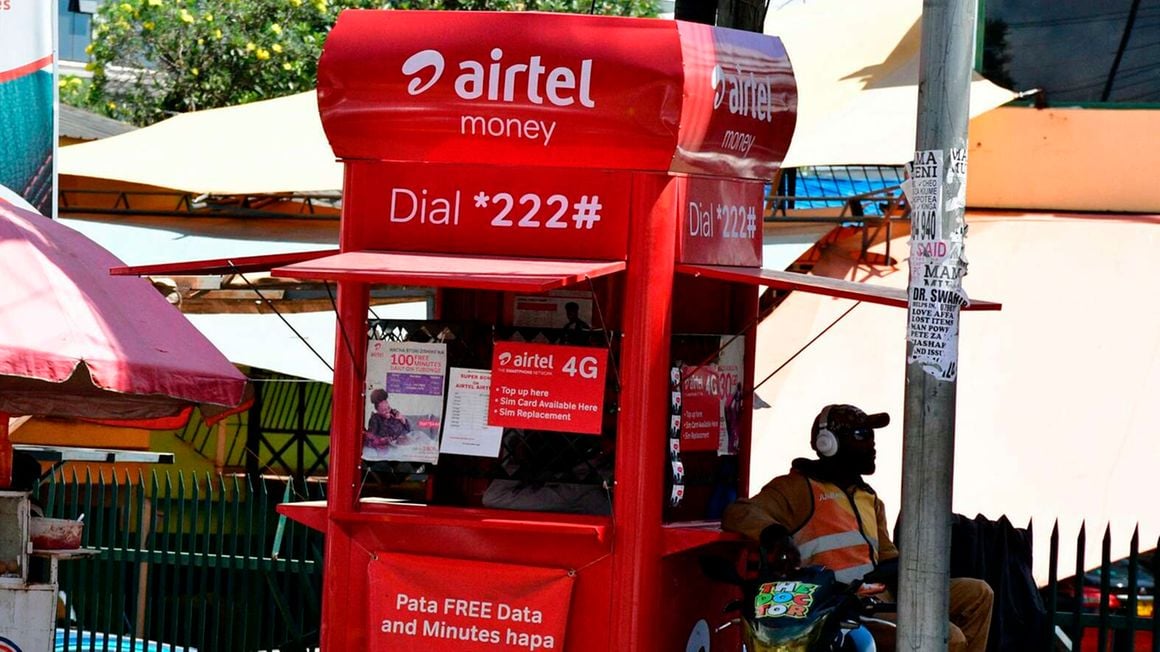
An Airtel Money kiosk operating at Westlands as pictured on March 22, 2023. PHOTO | FRANCIS NDERITU | NMG
Airtel Kenya has been saved from forcibly selling a third of its stake to local investors after US tech giant Amazon successfully lobbied President William Ruto to drop the
foreign ownership rules as a condition for setting shop in Nairobi.Dr Ruto on Thursday announced Kenya will drop the ownership rule introduced in April 2021 that gave telecoms firms up to March 2024 to ensure local ownership of at least 30 percent.
He reckoned that the rule had become a hurdle for large tech firms like Amazon wishing to open operations in Kenya, denying the growing number of skilled youth decent job opportunities.
Airtel Kenya will emerge as the biggest beneficiary of the policy shift after the firm started the difficult task of seeking Kenyan investors to buy a 30 percent stake.
The local ownership rule looked set to trigger deal-making in Kenya’s rapidly expanding information and telecoms sector, a prospect that has drawn the interest of foreign companies.
“This position is untenable and has made it impossible for large corporations to invest in Kenya. We will review this position and remove this requirement to facilitate greater investment in our ICT sector,” Dr Ruto told a regional business summit for US investors in Nairobi on Thursday.
“Additionally, our data protection law is aligned to support robust growth in data storage.”
The Uhuru Kenyatta administration, in which Dr Ruto served as Deputy President, had raised the threshold of domestic ownership for tech firms to 30 percent from the initial 20 percent, which had been set by the Mwai Kibaki government in 2008.
Dr Ruto said he was convinced to review the more-than-a-decade-long policy after Amazon Web Services – a unit of the US e-commerce giant that provides cloud computing platforms to individuals, companies and governments – committed to investing in Kenya on condition that the local ownership quota is scrapped.
Read: Airtel opens talks for sale of 30pc stake to Kenyans
“I was persuaded by a good gentleman from Amazon Web Services that it was impossible for Amazon to cede 30 percent equity to any entity they didn’t have any business relationship with. And as a result, they were holding their investment in our country,” Dr Ruto said.
The President, who took power last September, did not disclose the timeline for the review of the policy.
A few firms, including Airtel Kenya, have been exempted from the previous 20 percent shareholding rule, a window that allowed billionaire investor Naushad Merali to sell a significant portion of his shareholding.
Airtel’s difficulties in finding a buyer for the stake have been linked to the mismatch between the company’s valuation and local investors’ assessment of its worth based on the position that the business remains in the loss-making territory.
This position is what prompted the State to offer Airtel an open-ended waiver on the local ownership rule.
Mr Merali owned a 40 percent stake in Airtel Kenya, then known as Zain, in the late 1990s and made a number of share sales in the years to February 2011.
He sold his remaining five percent stake for Sh738 million in a deal that valued shares equivalent to 30 percent ownership at Sh4.5 billion.
To attract new investments into the sector, the regulation capping foreign ownership of telecom companies at 80 percent in 2009 was relaxed to allow foreigners to launch operations without a Kenyan partner and gradually comply by finding local partners in three years.
Locals own more than half of Safaricom while the government fully owns Telkom Kenya after buying a 60 percent stake from private equity firm Helios Investment Partners in August last year.
Read: Airtel sells mobile cash unit stake for Sh64.2bn
Global tech giants led by Microsoft, Amazon and Google have been increasing investment on the continent in recent years to take advantage of growing economies with rising access rates to the Internet by a youthful population.
They are using Kenya, South Africa and Nigeria as their launch pads for a bigger stake in Africa.
Dr Ruto said he expects Amazon to lead other global tech giants in setting up shop in Kenya after the review of the ownership rule.
“I hope that Amazon, now that I have kept my part of the bargain, you keep yours. But it is not just about Amazon, it is all about other ICT companies that want to invest in our country,” the President said.
The move could see Kenya become one of the first marketplaces in Africa for Amazon, which is reportedly looking to expand to the continent this year.
A past report by Business Insider had suggested that Amazon had identified South Africa and Nigeria for the rollout of its services on the continent in 2023.
→ cmunda@ke.nationmedia.com




No comments :
Post a Comment